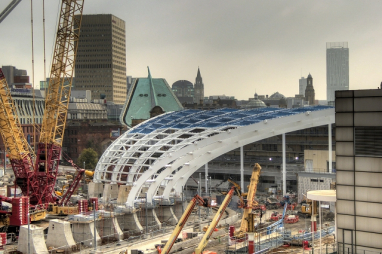- adidas mercury vintage cars price list Release Date , SBD , petite adidas inventory management system flowchart
- nike outlet at tanger outlet mall
- Nike Air Max 90/1 "University Red" Release Info - Nike Air Max 96 2 Women's Shoes White - StclaircomoShops
- nike jordan outlet online
- Air Jordan 4 Retro Off - CV9388 - White Sail - 100 - Jordan Brand quietly slipped in a new rendition of the low-top
- air jordan 1 retro high og university blue 555088 134
- air jordan xxxv cq4227 004
- nike air force 1 low white gold dc2181 100 release date info
- Miles Morales Shameik Moore Air Jordan 1 Spider Verse
- air force 1 shadow
- Home
- News and analysis
- Info hubs
- Events
- Video
- Case Studies
- About us
- Magazine
- Advertising
Produced for the industry by the Association for Consultancy and Engineering
News
Regional hotspots support construction growth amid Brexit uncertainty

Construction markets in the north west, West Midlands and the south west have seen output increase despite Brexit uncertainty and appear to be benefiting from devolution deals and greater autonomy.
According to the UK Market Intelligence report from professional services company Turner & Townsend, construction output increased by 30.7% in the north west, by 27.8% in the West Midlands and by 27.2% in the south west during the period immediately before the EU referendum through to the end of 2017. In contrast, construction output in London fell by 5.7% during this time.
The north west, West Midlands and south west are identified by the report as ‘hot markets’ where high demand and insufficient contractor supply has pushed up tender prices.
However, Turner & Townsend’s report forecasts that tender prices will only increase modestly this year even in these hot markets with 2.3% growth forecast in the West Midlands, 2.2% in the north west and 2.1% in the south west. London is forecast to have tender price inflation of 1.7% this year.
Paul Connolly, Turner & Townsend director, commented: “As market uncertainty continues to weigh heavily on the construction industry, output data in several regions gives early signs of a correlation between regional autonomy and resilience to the confidence-sapping impact of an uncertain political future. The data also reveals the nuances of the London market. Despite a slowdown in the office sector, the residential and infrastructure markets in the capital remain very buoyant.”
While there remains regional variations in construction output, an emerging national trend is the rise of single-stage tendering. In the first quarter of 2016, 27.4% of projects were offered on a single-stage basis, compared to 36.5% on a two-stage basis.
That split has now changed, with single-stage tendering having increased by over 10% at the end of 2017 while two-stage fell by over 5%. The trend reflects the increased contractor appetite to take on additional commercial and schedule risk.
“Notwithstanding, this increased appetite, clients need to remain cautious on what risk is actually being taken on and managed by contractors. The failure of Carillion and the rising number of insolvencies suggests risk transfer in the current environment can be illusory,” said Connolly.





